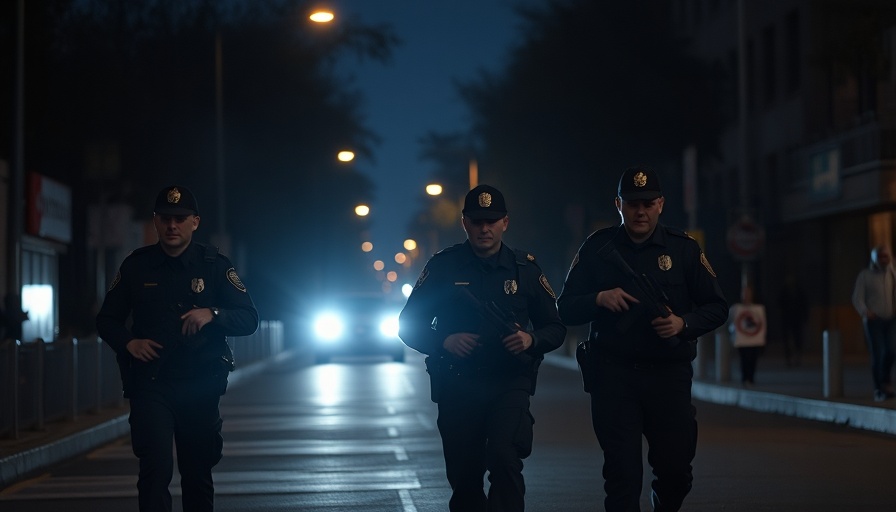
Understanding the Incident: Context and Background
On March 10, 2025, a tragic officer-involved shooting unfolded in Warren, Michigan, claiming the life of 41-year-old Kenneth Anthony Beno. Known for a history of domestic violence and mental health issues, Beno had active warrants at the time. While this incident raises questions about police decision-making in high-stress environments, it also highlights pressing public safety issues, particularly the intersection of mental health crises and law enforcement responses.
Addressing Mental Health in Policing
Warren Police Commissioner Eric Hawkins emphasized the complexity of the situation, which he pointed out lays at the crossroads between mental health and domestic violence. With over half of aggravated assaults and a staggering 70% of homicides related to domestic violence, the department finds itself increasingly responding to calls involving mental illness. Last year alone, they reported over 1,500 calls concerning individuals with mental health issues, averaging four daily. This scenario suggests an urgent need for a specialized approach to handling such crises.
The Role of Body Cameras in Modern Policing
The incident was documented through body-worn camera footage, a tool that has transformed law enforcement transparency. Body cameras not only serve to provide an objective recounting of events but also hold officers accountable, which is crucial for maintaining public trust. Moving forward, it remains pivotal that police departments enhance body camera programs alongside mental health training to arm officers with better conflict resolution skills.
Pivotal Moments Leading to the Shooting
As shown in the released footage, prior to the shooting, Beno was caught yelling at the officers to 'shoot me,' while brandishing a knife. Despite officers ordering him to drop the weapon, Beno advanced toward them, seemingly unfazed. The decision to use lethal force often weighs heavily on officers during such confrontations, characterized as a 'suicide by cop'—a term used to describe a situation where an individual deliberately acts in a threatening manner toward police to provoke a lethal response.
Challenges of Officer Safety and Decision Making
This case underscores the complex dynamics of police officer safety and the split-second decision-making required in high-pressure situations. Officers must constantly balance the community's safety against potential threats from individuals in crisis. Training in de-escalation, mental health awareness, and crisis intervention should remain top priorities in law enforcement training. Such measures can potentially mitigate the risk of similar tragedies in the future.
Moving Forward: Community and Police Relations
The Warren Police Department has initiated various training programs focused on emotional intelligence and crisis intervention in response to these challenges. Connecting community resources geared towards mental health and domestic violence support is crucial in addressing underlying issues that lead to violent encounters. Enhanced communication and partnership between law enforcement and mental health professionals can lead to more effective community policing.
Conclusion: A Call for Reform and Awareness
As community safety advocates and law enforcement officials navigate this delicate landscape, the need for comprehensive police reform and training becomes clear. Developing systems that integrate mental health resources within law enforcement practices can not only protect officers but also safeguard vulnerable individuals in crisis situations. The events in Warren serve as a catalyst for discussion on reforming police training programs, particularly emphasizing mental health awareness to prevent future tragedies.
 Add Row
Add Row  Add
Add 

 Add Element
Add Element 




Write A Comment